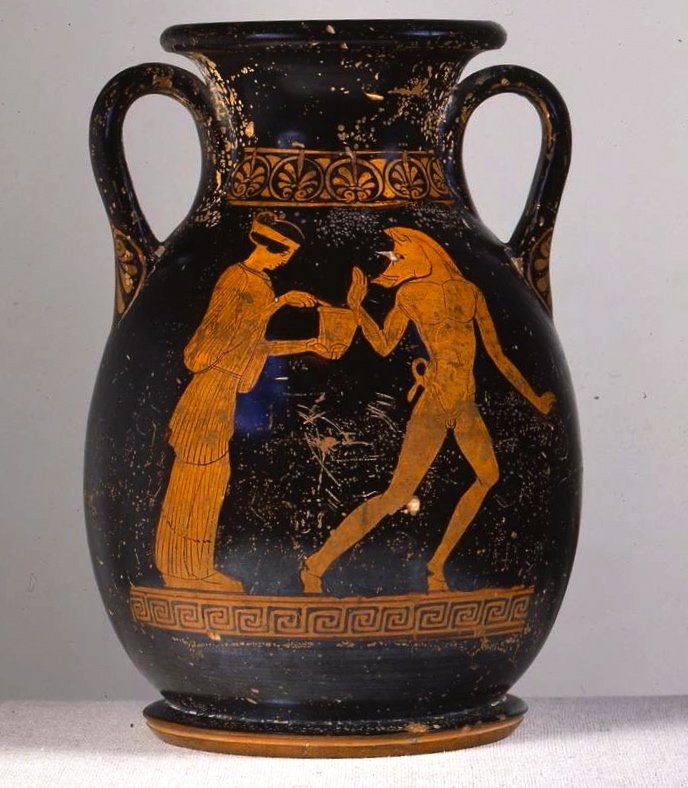Perfumery is a dyer’s and witch’s art
For Walpurgisnacht. In the Gryllus (Bruta animalia ratione uti), Plutarch has Odysseus argue with a man-turned-pig (Gryllus) about whether it is better to be a human or an animal. Odysseus thinks there is nothing better than being Greek. Gryllus counters, giving considerations in favour of being a pig. For one thing, he says, they are naturally virtuous and don’t have to be taught to be good. Their sexes are equal, by which he means they share equally in traditional Greek male virtues. And, in what he takes to be a knock-down argument, he says animals have no interest in luxury, which he associates with un-virtue and the human feminine: animals can ignore gold and silver as they would any other stone, they prefer mud to finely dyed robes and tapestries, and they don’t mind smelling of dirt:
“And besides, smell does not trouble us as it does you. Incenses, cinnamons, nards, phyllas, Arabian calamuses—you are compelled to collect and combine them together using a terrible art of dyers and witches that goes by the name ‘perfumery.’ You pay a lot of money for a luxury that is unmanly, girlish and which has no real use at all.”
τἄλλα δ’ οὐκ ἐνοχλεῖ, καθάπερ ὑμῖν, τὰ θυμιάματα καὶ κινάμωμα καὶ νάρδους καὶ φύλλα καὶ καλάμους Ἀραβικοὺς μετὰ δεινῆς τινος δευσοποιοῦ καὶ* φαρμακίδος τέχνης, ᾗ μυρεψικῆς ὄνομα, συνάγειν εἰς ταὐτὸ καὶ συμφυρᾶν** ἀναγκάζουσα, χρημάτων πολλῶν ἡδυπάθειαν ἄνανδρον καὶ κορασιώδη καὶ πρὸς οὐδὲν οὐδαμῶς χρήσιμον ὠνουμένους.
*καὶ δευσοποιοῦ Bernardakis
** συμφυρᾶν Bernardakis: συμφαγεῖν Teub.
Plutarch, The use of reason by irrational animals 7 (Moralia 990B2–9 = 6.94,11–18 Bernardakis)
